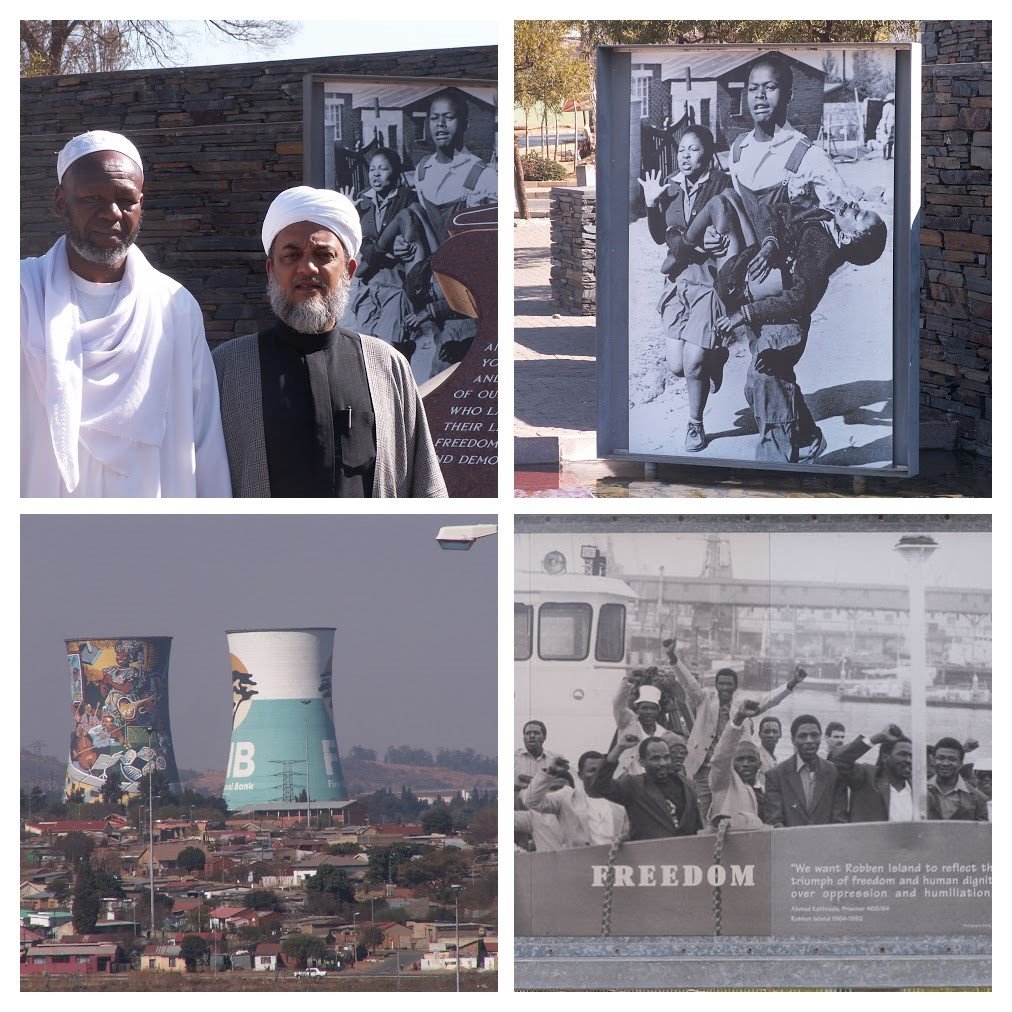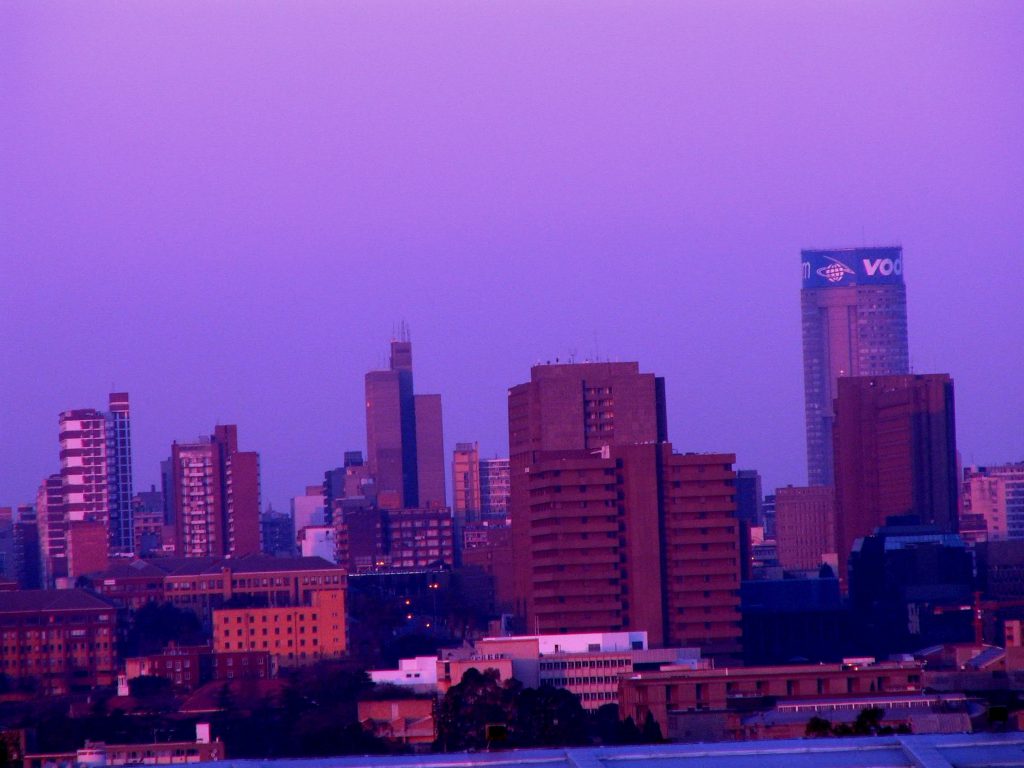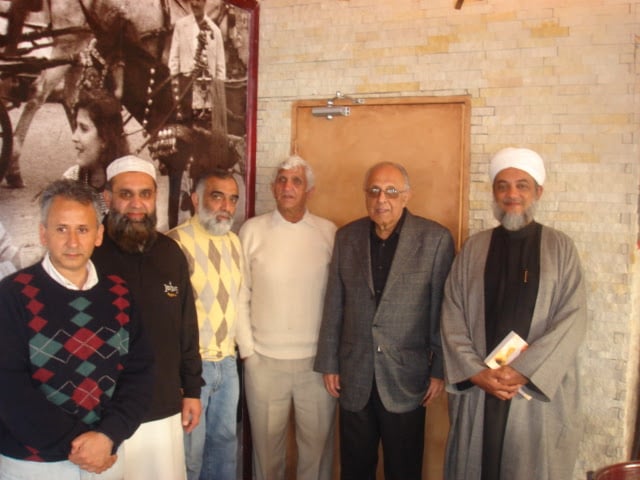
How to beat Goliath
Because size doesn’t matter
I have formulated 6 rules which I call David’s rules. These are for anyone facing the big one ...
This is a thought-share primarily for South African leadership who may be interested in an outsider’s view of the changes happening in their country. I have taken the liberty of adding my comments on what I believe will be helpful to do. I am not preaching to anyone. This is a thought-share with anyone who is interested. That’s it. (Article written in 2016)
When I graduated in Political Science in 1977, I never thought that I would live in a world where I would be able to see almost everything I studied and some more, happening. My world was a stable place with little change yet poised to take the dive from there into the maelstrom of change that we have become so familiar with today. Yet that happened and that too in less than two decades.

I was in South Africa last week on my pilgrimage as I like to call my visit to Kruger National Park; truly one of the most beautiful places on earth. As always, I also met my old friends, made new ones and watched with interest the changes since my last visit which in this case was in 2014. I have always maintained that there is much for South African leadership to learn from the post-independence history of India which would be learning without the pain of repeating that history in their own post-independence development. This article is to help those who are interested to do that.
India also came out of its colonial slavery, though without bloody revolution. We shall not mention the fact that we made up for the bloodletting during partition and the formation of Pakistan. The new leaders, Nehru, and gang, who took over from the British White Sahib Bosses faced the same post revolution dilemma – how to make the dream you sold to the people come true.
The Indian National Congress headed by Pandit Jawaharlal Nehru as Prime Minister, ‘solved’ the problems of job creation and land distribution by creating huge Public Sector Organizations run by bureaucrats who knew as much about running a commercial operation as I know about flying a plane. The purpose was to create jobs. Not manufacturing efficiency, quality, or innovation. And that purpose was achieved by employing at least three people to do the job of one. Worker friendly legislation made it a crime even to frown at a worker who didn’t – hold your breath – work. Trade unions became very strong, backed the political party which made the rules and later became the arbiters of power themselves.
As long as nobody asked questions about efficiency, productivity, quality or profitability this completely impossible system continued, and Nehru and his successors were able to ‘show’ how they were delivering on the promises made during the Independence Struggle. Nobody asked, ‘How long can this continue?’ It didn’t, as we shall see.
Land distribution was also handled in the same way through legislation which abolished the Zamindari system (feudal system where one person owned the land which was tilled by tenant farmers who were in many if not most cases, bonded laborers) and introduced the Land Ceiling Act. What happened was that large land holdings were divided up into small plots and given away to the tiller. Sounds so nice and cuddly but with it came the problem that the small owner – the erstwhile tiller – had neither the capital for inputs nor the know-how about cultivation. He had been a poorly paid worker who did what he was told. Suddenly he became a landowner. So, one of two things happened. Land which had been previously cultivated and yielded good crops, lay fallow and barren and the new ‘landowner’ went to work on a construction site in a city as a manual laborer; since that was the only marketable ‘skill’ he had. Or, many if not most of the new ‘landowners’ went back to the old owners and handed in their papers and said, ‘Please give me my job back and you can have the land.’ So officially they remained owners on paper. But the old status quo of the landowner returned. Militancy also came into being with some of the newly liberated bonded laborers wanting to keep their land and till it. Old owners tried to throw them out with the help of the police and the Naxalite Movement was born.
On the industrial front, Public Sector Corporations reached their size of self-implosion and simply got too unprofitable to run. Government ran out of money to pay salaries and mandatory increments. Labor laws originally created to protect the worker became means of encouraging non-productive behavior. Unions went over the top and in states likes Kerala and West Bengal literally paralyzed business and industry. Voting-in another party did nothing to change the situation. Finally, Government brought in what they called ‘Liberalization’ – liberating themselves from their false promises.
The back of the trade union movement was broken. Today there are no unions in the entire IT and ITES industry in India. Privatization of many areas took place. Manufacturing became more efficient but the ranks of the unemployed increased. Problem still not solved. In India what helped was the intrinsic entrepreneurial nature of the Indian which resulted in a lot of small and medium enterprise happening all over. Credit became easier to get with nationalization of banks. And the strong family system helped to keep people alive and kicking.
Huge numbers of Indians went to work in Gulf countries and their inward remittances supported their families. Indians by nature are fatalistic and not militant and so no major public unrest happened though public misery is all too visible. We are far from being out of the woods because we are now going on the track of fast becoming an oligarchy – with the wealth gap between the haves and the have-nots increasing rapidly. And the future looks bleak, especially for the poor.
Naxalite militancy is on the increase though not in cities yet. Crime is rampant though since the media is the mouthpiece of the establishment, goes unreported. Rampant farmer suicides are one major indicator of a very sick society. Corruption at an unprecedented scale is another. From being something that existed quietly and was indulged in clandestinely, corruption is now an aspirational goal, indulged in totally without shame. The industrialist – politician – bureaucrat nexus is working very well to corner resources for the few at the expense of the many. Fear rules and life is cheap and easily lost.
India is a notoriously corrupt country, with Transparency International giving it a rank of 76/168 (USA is 16/168) where crony capitalism thrives (On the World Bank Groups “ease of doing business index”, India is 130/168 and the USA is 7/168) and where inequality reins with extreme poverty (GINI index of 33.9, along with a HDI rank of 135/168). India is also a thriving democracy. All of these things combine into the one obvious conclusion: one of several established parties compete on the best way to manipulate elections using money and muscle-power. (Source: http://www.dailykos.com/story/2016/05/02/1484829/-Bernie-Sanders-and-Arvind-Kejriwal
But India is a big country and as they say, ‘Even a dead elephant weighs five tons.’ So, the effects of all this are not yet crippling. But we are getting there, fear not. We are getting there.

In 1995 I went to South Africa soon after they became independent but the only black people I saw were the waiters in my hotel and the servants in the houses of white people, who invited me to a braai. I stood on the viewing deck at the top of the Sun in Sandton at night, the city bright with lights except one big black hole in the distance. I asked someone if there was a power outage. The white man smirked and said, ‘This is not India. We do not have power outages. That is Soweto. They have no power.’ Remarkably interesting, I thought – arrogance apart. In India we have power outages and still do double digit growth while in Apartheid South Africa not giving power to the majority of citizens was state policy.

I went back to South Africa in 2005 and since then have been going there almost annually for what I call my ‘pilgrimage’ to the Kruger National Park. A journey of love which I look forward to for the eleven months that separate one from the next. I also meet lots of people, businessmen (have I met any businesswomen?), politicians, academics, educationists, farmers, doctors and other professionals, game rangers, students, professors (aren’t they academics?); Blacks, Whites, Indian, Colored, Christian, Muslim, Jewish, Atheist, Agnostic, Hindu, I-don’t-know-what-I-am; you name it and I’ve met it. They talk and I listen. I talk of course and sometimes they don’t like what I have to say but that is the risk of being an analyst – distance gives perspective because perspective is a function of distance but people who are close to the ground, who don’t like the diagnosis you give them, say, ‘You don’t live here. You don’t understand our reality’. Forgetting that it is precisely for that reason – because I do not live in South Africa – that I can see and understand the reality of what is going on.
As I have said before, it is cheaper to learn from other’s mistakes than to make your own. South Africa is in the unique position to learn from the mistakes of India but seems unable or unwilling to do so. I have been trying to convince all those I speak to when I visit there, to study post-independence India and learn lessons to apply in post-independence South Africa. They all listen respectfully, agree with me entirely about the need to learn, feed me great food, take me to Kruger Park, I put on weight and come home. Nothing changes. I love the hospitality of course and thank my hosts but remind them that I can afford my meals and did not go there for free food. If they do not change their ways, then I shudder to think about what will happen. And I cannot stop that from happening. There are enough examples in Africa itself to look at.
So, what is going on in South Africa? A revolution is taking place. It is in progress. It is happening as we speak. But it is a revolution without formal leadership, without clear ideology, without a strategic game plan. It is a revolution of nature. Of human nature to do what it considers best for its own survival, without sometimes bothering about any long-term results of precipitate action. It is extremely dangerous.
‘Ha! Wrong again’, you say. ‘Our revolution ended in 1995 when we became free of the apartheid regime. Now it is payment time.’
‘No’, I gently remind you. ‘1995 was the first stage in that revolution to become free. You reached that step. The revolution continues and depending on what you do; it can make you truly free or enslave you once again.’ The choice is yours. I am the analyst, remember? Also remember, shooting the messenger does not turn bad news into good. South Africa is poised on the brink. It can become a case study of what to do or what not to do. It is your choice.

Let me talk some theory first – Revolution 101.
Oppression is oppressive and sows the seeds of its own destruction at its inception. Those seeds germinate in thoughts of freedom. Grow in the atmosphere of yearning for freedom seeing others becoming free. Are watered with the blood of martyrs. Martyrs die and more are needed so those running the revolution must sell a dream. A dream where in effect the oppressed get everything the oppressors have today. Streets paved with gold, big cars, bigger homes, jobs for everyone, food galore. As the lyrics of the song go, ‘Money for nothing and the chicks for free.’
Nobody asks the real question, ‘How likely is all this?’ Nobody asks and nobody cares because dreams are supposed to be unrealistic. And let us face it, if it was not attractive enough, why would I leave my family to go and die in the street? I did not go to die. But I went and I died. And that was some more irrigation for the dream to grow.
Finally, it comes true. We are free. Now what?
Now I am waiting for my job, new car, home, food, 24-hour power supply, clean water, hospitals – you name it and I want it. But it does not come. Why not? Because the dream was a dream and dreams have an inconvenient way of coming true with strings attached. But nobody told me that. Well, let’s face it. If someone told you that you would have all of the above and more but that it would take two generations of hard work to get it, would you have fought to throw off apartheid? If someone had told you that you would have to go to school and college, study very hard, compete for jobs like everyone in every other country does, would you have died to give others a chance at that? If someone had told you that there is no free meal and no pot of gold at the end of the rainbow, would you have endured the suffering of the revolution? But that is the reality. Like it or not. Chickens do come home to roost. Promises must be fulfilled. People will hold you to them, Mr. Revolutionary Leader. And you cannot say, ‘They are not realistic.’ Because you made those promises and at that time you didn’t tell me that they were not realistic. You sold the dream. Now deliver. Or help me understand what to do to get it.
Every revolutionary party faces this. The let-down at the end of the revolution, when you expect to be in a permanent state of high in your dreamland come true. But instead face disillusionment, disappointment and even despair. This is the crucial threshold that all political parties who run revolutions have to face and cross if they want to succeed and actually give the people the beautiful life, they promised them.
If this is not done, what is the next step in this cycle?
Another party arises and sells another dream. ‘We will give you everything that these liars promised and failed to deliver. Jobs, electricity, water, homes, cars, everything. And you need do nothing except to support us. Support us and you will have it all.’ And believe it or not, people are ready to believe this story once again. They do not ask the crucial question which they should have asked in the first place – “HOW?” And the cycle repeats. Until of course one day you get a new leader who decides that he cannot really give people what they want but also doesn’t want to give up power and so a new dictator is born. There are plenty of examples of this in Africa itself – Uganda under Idi Amin for example and others which I am sure I do not need to name.
But as I said earlier, in our world of change you do not have to go that far back to see this cycle come full circle. Look at Egypt. As they say, ‘Power corrupts. Absolute power corrupts absolutely.’ Hosni Mubarak was oppressive to put it politely, for decades. Then came Mohammad Morsi. Sold the dream of freedom, jobs, food and won an election that nobody thought they would win. But once again the people were not prepared to face the reality, that it is not magic. Everything will happen but not overnight. I was in Cairo and Marsa Alam in April and May that year and saw people sitting in roadside cafes, drinking tea, and discussing politics. I knew this was a very ominous sign. Disgruntled people with real woes, sitting around in tea shops or bars talking politics in a free country is always dangerous. Sadly, my fears came true and Morsi’s government fell and Sisi came to power, even more oppressive than Mubarak. Circle is complete. The future is bleak. Morsi is dead.
Another good illustration of this process is that of growing up from childhood. A small child is dependent entirely on its parents. It ascribes all its life experiences to them. If it is happy, parents are good. If it is unhappy, it the fault of the parents. To an extent this is correct because parents have power, and the child doesn’t. However, when the child grows up, this equation changes. Parents are no longer powerful or even present. However, many people fail to grow up mentally and simply transfer this attitude of ‘Someone else is responsible for my happiness’, to their spouses or bosses, employers, economy, government, or global forces and go through life blaming others for whatever happens to them. True growing up is to own responsibility for yourself. Not merely to grow facial hair or other indicators of physical maturity. Real maturity is when the individual takes charge of his or her own life and says, ‘This is my life and I am responsible and I will do what it takes to make it the most productive and beautiful life possible.’ Only then is the person truly grown up and not simply a 30 or 40-year-old child. And this transformation can happen at any age.
The same is the case with countries that are under the yoke of oppression. People get used to being powerless and to blaming the ruling class for their problems. As in the case of the child, this is true because they are powerless. But oppression fuels rebellion so some take ownership for this powerlessness and decide to change it and the revolution is born. But what happens is that in the heat of the struggle, nothing is done to enable others to grow up also. And when independence is won, others merely view the new leaders in the same role as the old – i.e. ruling class – and look up to them in the same way – they are responsible for my happiness. Same chairs, different bottoms. This is dangerous for the ‘ruling’ party especially as they will be held responsible for the dream not coming true. And the cycle which I mentioned above happens.
Nobody tells the people that there is no ‘ruling class’ now. That they are the rulers. If they do not like something, they have to change it. They can’t blame someone else any longer. They must collaborate with government to make it productive. Not cop out and sulk or attempt to run away. There is nowhere to run. One cannot really run away from oneself, can one? Same logic.
This is exactly what is happening in South Africa today. I do not need to describe what is happening there. It is all too visible. Hubris at the success of the struggle. Then like kids in a toy shop filling the pockets with all the toys they can get their hands on. Forgetting that now you own the shop and so you cannot steal from yourself. You can only harm yourself by filling your pockets. Meanwhile the people who followed you are still used to the ‘ruling class’ attitude. Nobody told them that there is no ruling class any longer. They are the rulers and so they get to carry the can. They supported you in the revolution – they believed that they were working for you, not themselves. They believed your sales talk about what they would get when they won the revolution. You forgot to tell them that it would take time, investment, sacrifice, hard work and still more time. They are now waiting to get it.
“I am entitled to it. So, give it to me.”
“Work? I already did that. I fought in the revolution (or my father or grandfather did) and so I am entitled to the candy. Where is it?”
“On top of that, I see the toys you put into your pocket. I see the candy (corruption, privilege) that you are eating. So why can’t I also eat it?”
But enough of diagnosis. Let us look at solutions. What is the solution?
Two things:
Here’s a more detailed explanation:
Take the candy out of your pocket and put it back on the shelf. And apologize for taking it out of turn. Help your friends also to do that. The sooner this is done the easier and less painful it is. Delay is suicidal. Corruption is a cancer that is infectious and kills as surely as the real thing. You must look after your cow. You cannot milk it and not feed it. You cannot cut out a piece of meat because you are hungry. The cow will die, and you will die with it. Corruption is suicide. Root it out ruthlessly and quickly starting at the top. If the head is sick the body cannot be healthy. Do whatever it takes to cure the sickness. Swallow bitter pills, perform surgery, cut out the cancer before it kills you. I do not think it’s necessary to say anything more.
Tackle crime urgently. Investigate, prosecute, and sentence. Sayings like, ‘South Africa’s national sport is rape’, are not funny and indicate an extremely sick society.
| Year | Rape | Murder | Robbery |
| 2015 | 53,617 | 17,805 | 54, 927 |
| 2014 | 62,267 | 16,914 | 53,424 |
| 2013 | 66,197 | 16,211 | 53, 439 |
| Cumulative since 2004 | 7,83,687 | 2,12,312 | 7,83,680 |
The figures are horrific, and I can perhaps safely say that they don’t include a single politician of any hue in the list of victims. It is only poor people who have no protection who die and are raped. More people die violently in South Africa than in many war zones. And remember that it is safe to say that in all these cases the number of crimes committed is more than those reported.
I personally know of two cases of major robbery and one where a person was shot through the leg that were never reported. The reason, which I was amazed to hear, was that people have no faith in the police. This is a profoundly serious matter, where the citizenry has lost faith in Government. Sad to say that there appears to be very little, if anything done by the Government about it. This is something that sits squarely in the lap of the Government and must be dealt with urgently. South Africa’s crime is the single biggest deterrent for foreign investment. The apathy of the Government in tackling it is impossible to understand. It appears that there is a high level of collusion between criminals and enforcement agencies without which such levels of crime would be impossible.
The second biggest deterrent for foreign investment is the general lack of skills, the result of a failed education system. This again is something that is critical to address and correct without which South Africa will not be able to attract large investors who would be very happy to invest there and set up manufacturing facilities. South Africa needs vocational schools that can train people in marketable skills that can enable them to earn a living. This would directly impact the job market and provide jobs and enhance the quality of life, but it can happen only when the country can offer a high level of skills in the workforce. South Africa is the gateway to Africa but at present this seems to be used mostly by the drug trade. Control of crime, drug cartels and skill development to provide good jobs is the key. I have suggested some ways below
2. Change the mindset of people from ‘Entitlement to Contribution’.
Educate people on the steps forward and show them a realistic plan where they can see how to succeed and taste that success in a reasonable period of time. It is essential that people see results in their main pain areas and see them fast. Government must be seen to be doing things. Saying, ‘We won freedom for you’, is not enough especially for a generation which didn’t see apartheid. This requires the following: The public education system needs major overhauling. That is a subject in itself so I won’t talk about it here, except to mention the need to address this urgently. The current system is designed to create failures. It must change.
Introduce Vocational Training in all schools. Every child must learn a trade or skill by the time they complete schooling. That way they will have a marketable skill which they can use to earn a living. It is critical to develop a thriving middle class. Give people something to lose. The problem today is that people have nothing to lose.
Rejuvenate the Farm Schools and train children in farming while completing their primary, secondary, and high school education. Get them connected to the earth. That is the best education and will prepare them for the real thing later. The Afrikaners knew what their Farm Schools produced. Just replicate that and you will get the same results. People connected to the soil are people who are interested in the development of the country.
Ministry of Small Business: The Right Step Forward – But…
It is completely untenable that the Government is the biggest employer in South Africa employing over 45% of the employed population. No government has the money to pay that salary bill or to take care of inevitable increments, social welfare expenses and so on. There is a critical need in South Africa to create a robust class of self-employed people who not only take care of themselves but provide employment for others.
As the sub-heading of this section says, the initiative to set up a Ministry of Small Business is an excellent step. This must be supported, and results measured. A good idea is to seek ‘Customer feedback’ to see how Government’s initiatives are being experienced by those for whom they are meant. In my own search on the net, I have seen some excellent articles. One is here: http://bit.ly/1rAOIo0 And another one: http://www.sacsis.org.za/site/article/2020 So listen to people and recruit them in enabling small businesses to succeed.
Provide training in all aspects of entrepreneurship. In my view this is the key to development, eradication of crime, handling the food and energy crisis and education in South Africa. Enforce entrepreneurship.
Set up a Venture Capital Fund to provide prospective entrepreneurs with interest free loans. These must be given after a rigorous selection process of examining business plans and ensuring that they have a high likelihood of success. This must not become a way of giving handouts or payoffs to certain people. Loans must be repaid and that must be a metric to measure the success of this initiative.
The capital for this fund can come from major multinational companies operating in South Africa as part of their CSR. I know this is being done by some progressive CEO’s but it must be hugely boosted. I believe that the way to do that is by creating a full-fledged Venture Capital Fund that is available to all aspiring entrepreneurs. Business CEO’s will recognize the value of such a fund and will fully support it. Invite them to sit on the Board and run it – not government bureaucrats. We need businessmen/women to run this Fund.
Pair new entrepreneurs with established businessmen and women who can coach and mentor them.
Set up a National Entrepreneurship University that trains in all kinds of vocational skills and starting up businesses.
Award Prizes for successful startup ventures in all provinces and at the national level. There should be significant monetary awards that encourage people to participate and are worth working for.
Institute special prizes for entrepreneurial initiatives in key areas like poverty eradication, alternate energy, education, food production, transportation, health management and other high need areas. Prizes must consider, innovativeness, social consciousness, creativity.
A vibrant middle class is essential to survival in any economy. The bigger the middle class the bigger the market for goods and services and more money flows into the economy and is available for public services like healthcare, education, transport and so on. Contrary to the myth of trickle down, money does not flow down from the super-rich or from global multinational corporations into local economies. The super-rich do not use local services, live in ivory tower isolation and are generally unaffected by local conditions as they are surrounded by cordons of insulation. Multinational corporations are answerable to their shareholders who do not live in Soweto (so to speak) and so they don’t care what happens in local economies. Many do not even employ local people, except in menial jobs because locals may not have the education and skills that they need.
Countries like India and China score over South Africa in this regard because they have a strong education and skill base and can provide potential employers, people of equal competence at a much lower cost. That’s not the best USP – buy me because I am cheap – but it works for a while anyway to build a middle class. South Africa has a lot of catching up to do. However, I believe that if the things that I have mentioned above are done and done urgently, then South Africa will be able to solve its problems of crime, unemployment and political unrest and create a stable, vibrant middle class with a high standard of living.
Please log in to leave a comment
Loading comments...

I have formulated 6 rules which I call David’s rules. These are for anyone facing the big one ...

One of my friends who comes from ...
I have said this a million times, if I have said it once – the three crimes committed on society with society’s blessing are: Commerci...